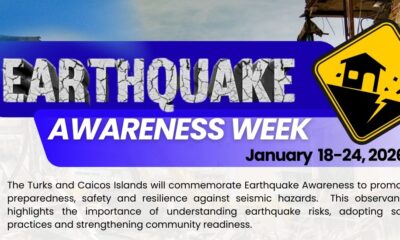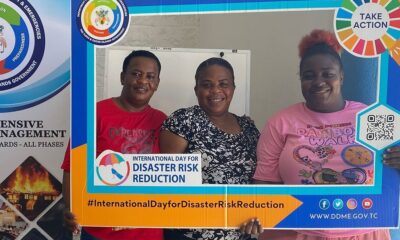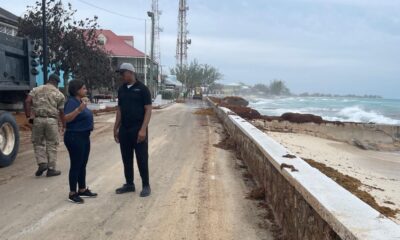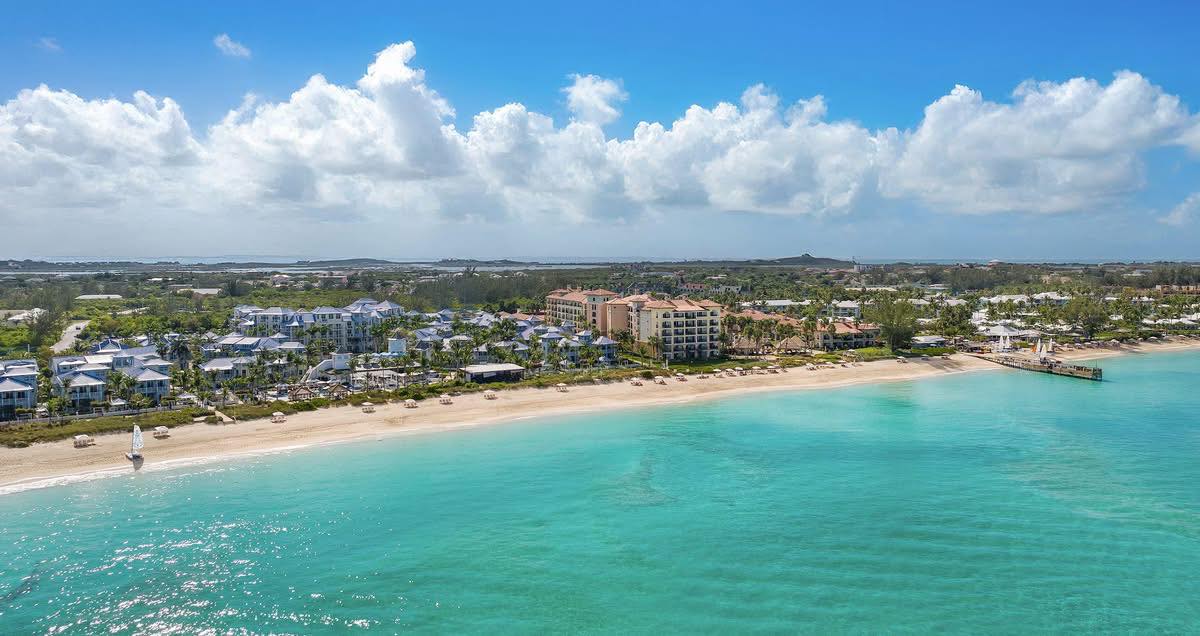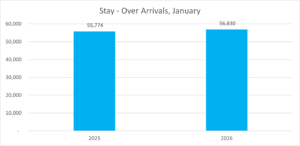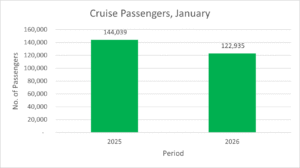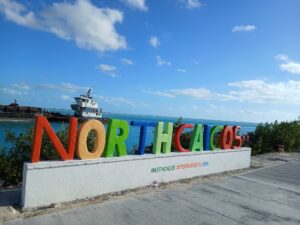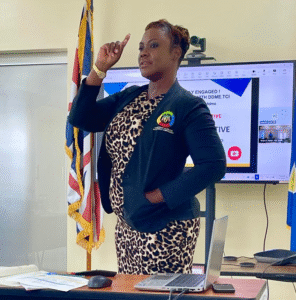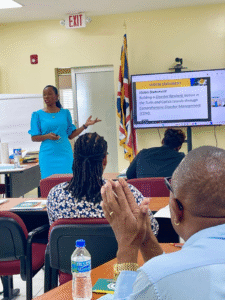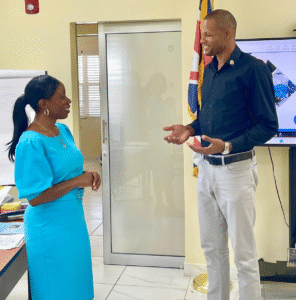By Dana Malcolm
Staff Writer
#TurksandCaicos, June 6, 2022 – The 2022 Atlantic Hurricane Season has officially started and in the event of a storm the Department of Disaster Management and Emergencies, DDME, is “far more prepared” than it was in 2017, says Minister of Immigration, Arlington Musgrove.
That was the year of hurricanes Irma and Maria; which destroyed 80 percent of buildings and hit every island in the archipelago with record setting winds and storm surges.
“I do think the DDME is far more prepared…the plan I see in place if a hurricane happened today. I think we would weather it through and come out dearly well.” He said
Assistant Director of the DDME Mike Clerveaux agreed, adding, “We are in a far better position now than before. We have been having a lot of meetings and we have been improving our communication systems.”
In response to questions about what the government was prepared to do to support economically vulnerable families who also need to brace for the hurricane season in light of inflation, Musgrove explained.
“The Government met for a few hours and we discussed ways that we can help people in these times, especially on the bread basket items.”
the bread basket items.”
Musgrove said talks were also on with the Ministry of Physical Planning and Infrastructure Development to discuss plans for the aftermath of any hurricane that might hit the islands.
He said attendance of the team at a disaster management conference in Orlando exposed deficiencies.
“We lack storage for the DDME so we are looking to get a property and put a 8000 ft building on that we can store all our stuff. Not only for the times of hurricanes, we have people who need stuff on a daily basis. The DDME is not just for (Hurricane) disasters, so we’re gonna work closely with Social Services.”
He maintained that the government had a “Foolproof Plan” including plans for different officials to be spread across the islands, and heightened use of satellite phones in case of outages.
The minister who is also the Member of Parliament for North and Middle Caicos said he will be station in the twin islands, in the event of a significant storm.
Minister Musgrove also made it clear that the Contingency Fund was in place for any resources required in the event of catastrophic damages.
He added that knowledge has been gathered from overseas responses which bode well for TCIs readiness and responsiveness. 
Musgrove, who is also the Immigration minister admonished anyone who was unsafe to come into the shelters if that need arose.
“The people who are afraid to come to shelter because they think it’s going to be a capture, we encourage everyone who need shelter to please come to the shelter ahead of time.
The Government will give an alert when we get it from the DDME. We encourage everyone who does not have a place to be, we think their houses aren’t safe, Those people who are living in the bushes, we will not arrest you because we want your life to be saved.”
In terms of the shelter availability and COVID19, plans were in place the DDME assistant director said.
“In regards to COVID-19 within our shelter management training we have been putting measures in place to train our managers to check for COVID.”
If someone does test positive at a shelter, Mike Clerveaux (acting director) said there would be specific areas at each shelter designated for quarantine.
While Islanders were urged to download the new DDME App those without the means to do so were ensured they will not be left behind.
Mr Clerveaux said the app would not replace any current communication systems already established including social media pages, but it would work alongside them.
Prior preparation was again stressed Clerveaux said, “This is the time for us to be prepared, if the average person is not prepared, the community is not prepared, then no matter what we put in place we are still going to have some problems.”



 News6 days ago
News6 days ago
 Caribbean News1 week ago
Caribbean News1 week ago
 News6 days ago
News6 days ago




